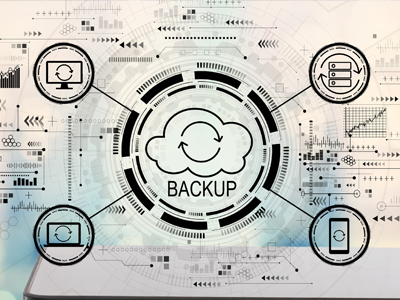A comprehensive backup planning for data is the secret to minimize downtime in case of a potential network failure. Contrary to naïve misconception, businesses need more than just a hands-on copy of their data. In 2021, it takes strategic and robust backup planning to recover from a potential data loss.
Keeping that in mind, let’s take a look at the best data backup planning practices for businesses in 2021:
The Need to Have an Updated Backup Plan
In a digitalized and tech revolutionized the world, there are still companies that overlook the importance of having a backup plan. If you want to move forward in the growth-driven direction, then realize the need that your business needs data backup planning.
Once you recognize this need, you can implement a practical data backup solution to avoid data loss. One study finds that more than 55% of small and medium-sized businesses don’t expect a significant data loss and lack planning. What’s startling is that more than 60% of SMBs never get to recover their lost files and documents.
Whether you operate in the finance or healthcare sector, it is fundamental to realize the need to have an integrated data backup and planning solution. A proactive approach will allow you to safeguard your organization’s valuable data.
Integrate and Automate
When it comes to integrated data backup and planning strategy, you have to take into account “how” your data will transfer to your backup destination. Gone are the days of manual data saving on unsecure servers and redundant network infrastructure.
Modern data backup and planning practices allow companies to automatically save the progress of their files and documents after every 10-15 minutes. In fact, some of the best backup planning solutions automatically and silently save organizational data with a short interval time. It also serves as a self-sustaining mechanism to create a sense of reassurance and avoid human errors throughout the day.
Data Backup through Endpoints
Usually, employees now spend most of their time on laptops or desktops to take care of organizational work. In most cases, employees move around files in one central location after work. Most businesses are often surprised that most of their business files exist solely on employees’ laptops and desktops.
But these machines are vulnerable to data loss and that creates unexpected hurdles for organizations. The best course of action for organizations is to integrate data with a modern backup and planning strategy. Despite the completion stage, it is a perfect approach to backup data straight from secure endpoints
Don’t View Cloud Apps as Backup Solution
When it comes to cloud technology, cloud migration, and cloud-based sharing applications are on the rise. But workplace data backup standards shouldn’t revolve around cloud applications for the organization. For instance, businesses need to realize that OneDrive, GoogleDrive, or Dropbox are not automated cloud-based backup solutions.
Instead, these applications serve as collaborative tools for teams to share specific files. Of course, cloud sharing applications are ideal to collaborate and share files. But your organization shouldn’t equate these apps with data backup and planning solutions.
Maintain an Offsite Data Backup
Another hallmark practice is to have at least one offsite data back and planning solution in place. In layman’s terms, an offsite data backup solution would store your organization’s data in a separate data center.
The benefit of storing data on a remote data hub is to make sure your data stays safe from potential cyberattacks. Since cybercriminals have become more cunning and clever, it makes sense to maintain an offsite data backup solution. In the case of a cyber attack, you can recover data and restore operations effortlessly.
Bottom Line
When it comes to day-to-day business operations and modern productivity standards, your organization’s documents and data have a correlation. Without a uniform backup planning strategy, organizations take the risk of losing valuable data. On top of all, data loss leaves a direct impact on business clients and as well as employees.
Today, running and maintaining optimal business operations is all about certainty. It’s the certainty to decrease downtime and generate more revenue. And the solution lies in rolling out the best strategies and practices of backup planning to avoid data loss.
Reach out to VAST to learn more information. We offer modern data backup planning solutions that allow organizations to remain operational and break productivity records. Our IT experts can help you adopt a compatible backup planning strategy that caters to your business needs.



